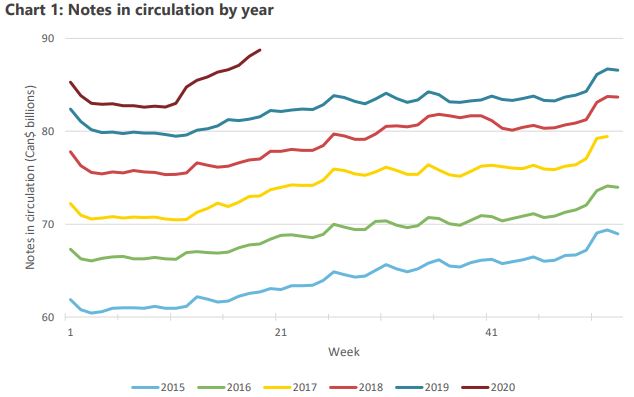The Bank of Canada recently revealed it is experiencing a shortage of $50 bills, as an increasing number of Canadians began to hoard cash during the coronavirus pandemic.
The Bank of Canada’s stock replenishment is regularly scheduled for the end of summer, but with the heightened demand for $50 and $20 bills during the pandemic, order adjustments had to be made so to maintain sufficient inventories over the next several weeks. Although the central bank was unable to specify why exactly there has been a sudden increase in demand for the bank notes, it did release a staff discussion paper outlining several possibilities.
One scenario suggests that banks have been taking precautionary measures amid the pandemic, and have increased their cash inventories. Banks also could have drawn out more money as a means of mitigating cash flow disruptions by retailers affected by coronavirus restrictions. However, the increased circulation of bank notes could be attributed to consumers demanding more cash for storing during uncertain times brought on by the pandemic.
The Bank of Canada report also found that Canadians held an average of $22 more in cash during the pandemic compared to the same time a year prior. Conversely however, about 35% of Canadians reduced their overall use of cash in the meantime. Although many more consumers have been withdrawing cash, the amount of places that have been accepting bank notes have been diminishing during the pandemic. Businesses such as Tim Hortons and Loblaws have been discouraging the use of cash for payment, while others have been refusing bank notes altogether.

Information for this briefing was found via Bank of Canada and CTV News. The author has no securities or affiliations related to this organization. Not a recommendation to buy or sell. Always do additional research and consult a professional before purchasing a security. The author holds no licenses.









